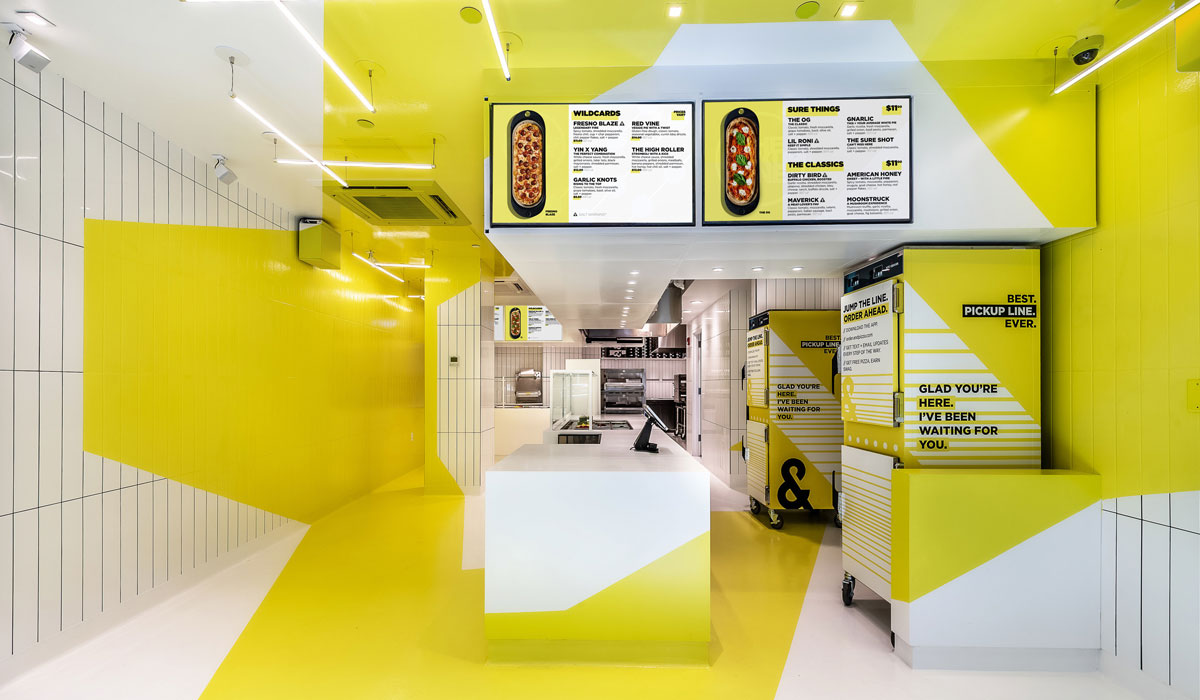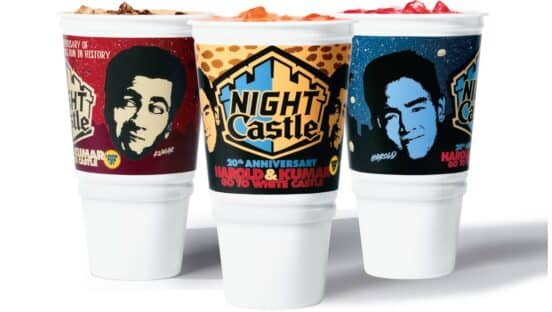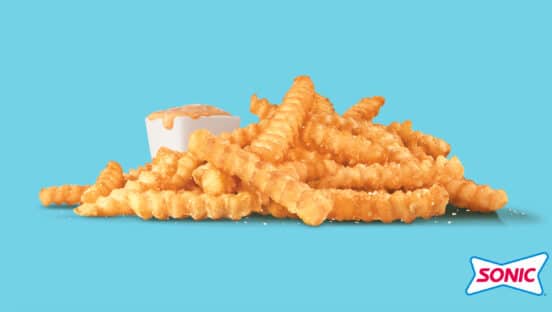The COVID-19 outbreak has wreaked havoc on restaurant sales, forcing thousands to close and still others to furlough employees until business is back to some sense of normal.
But some brands have gone on the offensive, pivoting to new business models, marketing strategies, and HR platforms in an attempt to not only survive the downturn caused by coronavirus, but also to prepare themselves for whatever comes next.
That includes Washington, D.C.–based &pizza, a fast-casual pizza concept with 40 locations on the East Coast. The company has reinvested in its employees through new incentives that assist them through the downturn, while it’s also committed to providing free meals for medical professionals on the frontlines of taking care of coronavirus patients.
Cofounder and CEO Michael Lastoria says the company was able to quickly put these platforms in place because they were a natural extension of the deeply embedded culture &pizza has had in place since it launched in 2012. For example, early last year, &pizza donated about 30,000 pizzas to furloughed employees during the five-week government shutdown.
“I think when you have it in your DNA, when it’s the right thing to do, it gives you more clarity on what to do versus being paralyzed or being sidelined,” Lastoria says. “It’s just part of the DNA of the company.”
And while paying more for employee programs and giving away free food at a time when sales are down at unprecedented levels across the industry, Lastoria says a smart and measured approach has worked for the company.
“There’s definitely a needle to thread. It’s not necessarily the easiest thing to do,” he says. “We do have some cash on the balance sheet. That being said, our investor did not invest in a nonprofit; they invested in a for-profit. So it’s striking the fine line between doing the right thing and making sure that we’re protecting our business. And for us, it’s always been focusing around doing well by doing good.”
Lastoria joined QSR’s podcast Fast Forward to offer a playbook for other operators who hope to maximize their impact in the midst of the crisis—and who want to position their brands for brighter things in a post-coronavirus world. (Stream the full podcast above.)
Take care of your employees
The first thing &pizza did in the immediate aftermath of the coronavirus outbreak was to ensure its employees—who it calls its tribe members—were taken care of and provided for. It expanded its paid sick leave for employees and waived its wait time for full health benefits for new employees, but it also increased its hourly wages by $1 for all store-level workers, promised unlimited free pizza for employees and their immediate families, and teamed up with Lyft to provide $5 rides to work for its employees.
Lastoria says the company has managed to retain all of its workforce through the pandemic because of these moves.
“We really wanted to make sure that we were protecting our people, letting them know we could remove one simple burden, which is the financial burden—letting them know that we’re going to be there to help take care of them, to meet their needs and make it really easy,” Lastoria says. “If they’re not up for the task or they’re feeling sick or they’re scared, please stay home. We do not want to put you in harm’s way. I think that’s a really helpful way for us to keep a lot of our doors open, incentivizing people to show up and providing a safe-as-we-can work force.”
Take care of your communities
In mid-March, &pizza announced it would support the medical community who was fighting COVID-19 on the frontlines. Through its Hero Pies program, &pizza donated free pizzas to any medical professional who texted a designated number. The program then evolved to allow customers to buy pizzas for medical workers by texting a number or contributing online.
“It’s been a really fun program, giving [employees] a reason to want to show up to work, to be a part of this whole thing and just be a light in very dark days,” Lastoria says.
On April 13, &pizza announced a partnership with the global bank Citi to expand the Hero Pies program. The partnership allowed &pizza to expand Hero Pies to Philadelphia and Baltimore, and it also established Hero Kitchens, which are three &pizza shops that closed to the public in order to focus solely on providing free pizzas for medical workers. Citi projected that the Hero Kitchens would produce more than 100,000 free pizzas for hospital workers on the frontlines.
Lastoria says the Hero Pies platform is a way the company can give back to the people who have supported &pizza since the beginning.
“We look at this as investing in the very people in the very communities that are the reason why we’ve been able to grow, that are the reason why we have some of the healthiest economics in the industry,” Lastoria says. “We’re making investments in the people that invested in us, and we’re going to always do it, and we believe fundamentally that keeping our doors open, focusing on employing our workforce, being a good employer, [and] focusing on investing our communities is going to lead to probably quite a bit of success on the other side in terms of our ability to bounce back.
Innovate even through crisis
Throughout the coronavirus pandemic, most brands have pivoted to new business models and marketing strategies simply for the sake of survival. Meanwhile, some restaurants have chosen to temporarily shutter and furlough employees as a way to weather the storm.
But Lastoria doesn’t think closing is the right move. And in fact, he doesn’t think operators should just pivot to new strategies; he believes they should go on the offense, innovating even while fighting to keep the lights on.
“It’s probably the safer thing for us to furlough, to keep as much cash on the balance sheet, and to hide under a rock or to go back into our shell and wait this thing out,” he says. “But it’s not who we are as a group of people, and for us to come out better on the other side, I think we have to be working through this. We have to be experiencing what everyone else in America is experiencing, and we have to be innovative.”
Momentum is a hard thing to rebuild, Lastoria adds; bringing talented employees back to work after the pandemic is over may be harder than some operators think, and consumer behavior will likely have shifted due to the coronavirus. That means that brands that innovate, engage with their communities, and invest in their employees throughout the crisis will be stronger on the other side of it.
Besides, Lastoria says, this is the hospitality industry. Taking care of people is what restaurants do.
“How are you using the infrastructure that you have, and the fact that you have hospitality in your blood, to offer some type of a service to the communities or the people that you employ?” he says. “I think it’s a really important thing, because I do think that type of work inside of this will benefit you on the outside.”
Create a brighter future for your brand—and the industry
The coronavirus pandemic is likely the kind of black-swan event that dramatically alters society in ways we’ll only know in hindsight. That includes the restaurant industry, which could see dramatic shifts in operational necessities and consumer trends.
Rather than accept whatever is coming, Lastoria thinks the industry should use this season to be more intentional about that change, and to collectively work toward a new “normal.” He believes that new normal should at least include better pay for hospitality workers, as well as comprehensive sick pay.
“People see and can acknowledge things that are broken when everyone is feeling the same pain at the same time,” he says. “Let’s not forget those things. Let’s lean into those things, because we do have a really great opportunity to become more connected as a group of people, to be more tribal, broadly speaking, as a country, as a world, because we’re all experiencing this at the same time and none of us are immune.”
[image source_ID=””]










